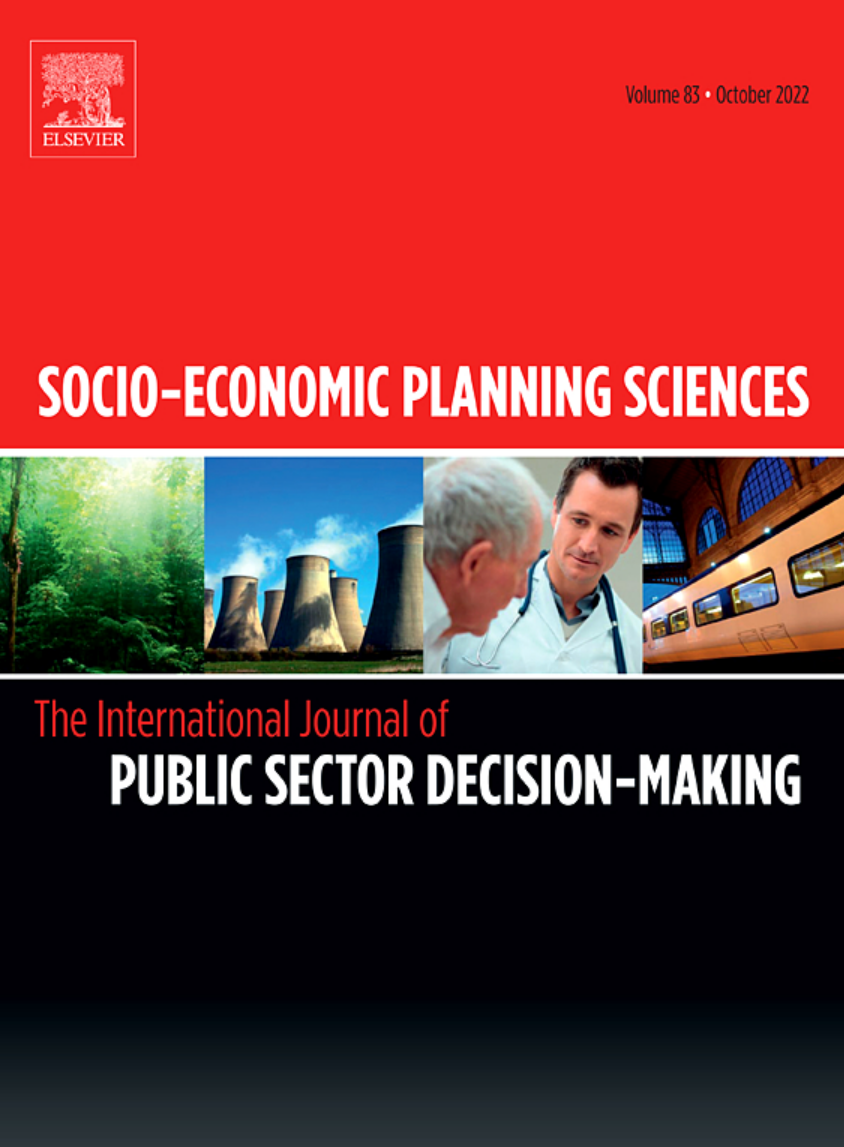Editorial Board
Editorial for the special issue on “Transforming public health through artificial intelligence, machine learning and internet of things”
Comparative study of a mathematical epidemic model, statistical modeling, and deep learning for COVID-19 forecasting and management
Does the opening of China railway express promote urban total factor productivity? New evidence based on SDID and SDDD model
When more is less: Do information and communication technologies (ICTs) improve health outcomes? An empirical investigation in a non-linear framework
Fair and diverse allocation of scarce resources
Putting Health 4.0 at the service of Society 5.0: Exploratory insights from a pilot study
Predicting ambulance offload delay using a hybrid decision tree model
Data-driven test strategy for COVID-19 using machine learning: A study in Lahore, Pakistan
The imprinting effect of SARS experience on the fear of COVID-19: The role of AI and big data
A hybrid multiple-criteria decision portfolio with the resource constraints model of a smart healthcare management system for public medical centers
Preventing crimes against public health with artificial intelligence and machine learning capabilities
Digital public health: Automation based on new datasets and the Internet of Things
Can artificial intelligence enable the government to respond more effectively to major public health emergencies? ——Taking the prevention and control of Covid-19 in China as an example
Development path based on the equalization of public services under the management mode of the Internet of Things
Empirical research on smart city construction and public health under information and communications technology
Novel spatiotemporal feature extraction parallel deep neural network for forecasting confirmed cases of coronavirus disease 2019
Outlier knowledge management for extreme public health events: Understanding public opinions about COVID-19 based on microblog data
Simultaneous action or protection after production? Decision making based on a chance-constrained approach by measuring environmental performance considering PM2.5
Performance evaluation for regional innovation systems development in China based on the two-stage SBM-DNDEA model
What causes spatial inequalities of low-carbon development in China's transport sector? A newly proposed meta-frontier DEA-based decomposition approach
Performance of tax simplification around the world: A panel frontier analysis
A socio-economic and environmental vulnerability assessment model with causal relationships in electric power supply chains
An integrated CRITIC and MABAC based type-2 neutrosophic model for public transportation pricing system selection
Planning for relief distribution, victim evacuation, redistricting and service sharing under uncertainty
A multi-criteria and stochastic robustness analysis approach to compare nations sustainability
Trade, uneven development and people in motion: Used territories and the initial spread of COVID-19 in Mesoamerica and the Caribbean
Accounting multiple environmental variables in DEA energy transmission benchmarking modelling: The 2019 Brazilian case
Curing is caring? Liability reforms, defensive medicine and malpractice litigation in a post-pandemic world
A bi-level multi-objective location-routing optimization model for disaster relief operations considering public donations
Predictive resilience of interdependent water and transportation infrastructures: A sociotechnical approach
Do the rank difference of industrial development zones affect land use efficiency? A regional analysis in China
Housing markets, the great crisis, and metropolitan gradients: Insights from Greece, 2000–2014
Lifestyle dynamics index: Worldwide results and the case of the United States of America
Performance evaluation of Turkish Universities by an integrated Bayesian BWM-TOPSIS model
Designing pandemic-resilient voting systems
Blockchain in humanitarian operations management: A review of research and practice
Ensuring multidimensional equality in public service
Performance assessment on technology transition from small businesses to the U.S. Department of Defense
Erratum to “smart specialisation and tourism: Understanding the priority choices in EU regions”, Socio-Economic Planning Sciences 74(2021) (100883)


